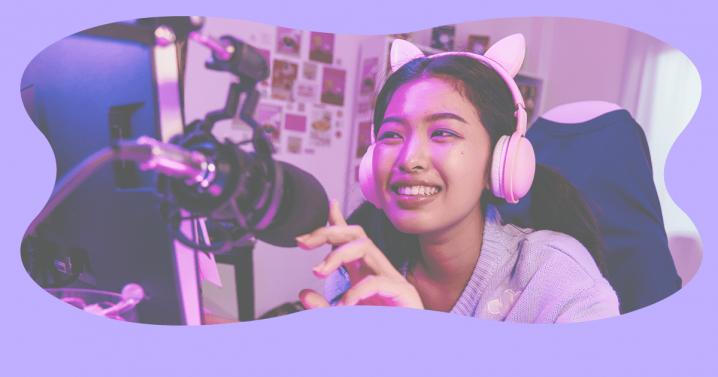
- POPSUGAR Australia
- Gaming
- Can Gaming Affect Our Mental Health?
Can Gaming Affect Our Mental Health?

Despite some common negative beliefs around gaming, it can be a great outlet for many people. There is very little scientific evidence to suggest that playing violent video games leads to aggression, and even some research that suggests playing video games increases well-being.
According to Amber Rules, Clinical Psychotherapist and Director of Rough Patch Affordable Counselling, gaming can help us to “relax, de-stress, distract ourselves while focusing on something else which requires full attention, have fun, use lateral thinking and problem solving skills, practice patience and strategy, improve dexterity and help with social connection and making friends.”
So why does gaming often come with a negative stigma?
Gaming is a clear form of escapism, which has been known to be thought of as a distraction from “real life” and perhaps a band aid-fix to a problem rather than dealing and coming to terms with our emotions and experiences.
Interestingly, we don’t feel the same about books, or even TV shows. It’s pretty normalised to get lost in a good book or binge a new Netflix series, but we don’t treat gaming the same way.
When I was growing up, my parents wouldn’t buy me gaming consoles out of fear I’d want to spend all my time gaming, rather than “actually learning” or that I’d become antisocial and not willing to interact with the “real world”.
Much like most things, gaming is best when done in a balanced way.
“When over-used, it’s possible gaming can cause some negative effects,” Rules tells POPSUGAR Australia.
“If you play games in favour of meeting your responsibilities for work, school or relationships, if you opt out of doing enjoyable things in order to play, if you use gaming to relieve intense feelings like anger, sadness, anxiety or depression, or if you find yourself losing interest in anything other than gaming, it may be important to seek support.”
“The other impact on gamers can be physical; it may sound extreme but it’s possible for gamers to develop repetitive strain injuries such as tenosynovitis and epicondylitis (both forms of tendonitis) and carpal tunnel syndrome.”
Given the assumption that gaming breeds antisocial behaviour and acts as escapism, it’s not surprising that most people don’t know how great gaming can actually be really for your mental health.
This research demonstrates that a visually demanding video game like Tetris, can help with recurrent intrusive thoughts (such as those that are experienced with PTSD) and this study found that some children who play Fortnite in a cooperative way are more likely to display greater prosocial behaviour afterwards.
“Thinking about the positive aspects of gaming, it could be useful for someone who wishes to develop certain skills or coping strategies,” Rules says.
“For example, if you find it hard to make friends, you might benefit from meeting people online to play video games. If you often feel stressed and overwhelmed, gaming may help you to tune out for a while and focus on something fun.”
Another reason that gaming has a negative stigma, is it’s addictive qualities. Most people that game, game a lot. It’s a pretty consistent hobby. But when you think about it, most hobbies are. Whether you’re into yoga, drawing, cooking or gaming, if it’s something you’re passionate about and want to get better at, it’s pretty normal to do it regularly and actually, a really good thing.
“There is burgeoning research about gaming, mostly in relation to internet gaming, which is attempting to classify whether gaming is an addiction or not,” Rules tells us.
“While it has not been classified as an official disorder in the DSM (Diagnostic and Statistical Manual of Mental Disorders), there are some criteria that have been developed for further study.“
Although gaming can certainly be compelling to the point of that addiction may be possible, and it’s no secret that video games are built to entice the player to play more, Amber says that gaming is not inherently addictive.
“In the same way some people can drink alcohol in moderation without a problem, and others become addicted,” she explains.
If you’re really into gaming, and worried that it’s taking over your life in an unhealthy way, that’s worth addressing. But, if you find gaming to be a welcome escape, to help you de-stress and get creative, there is a good chance that it’s doing wonders for your mental health.


